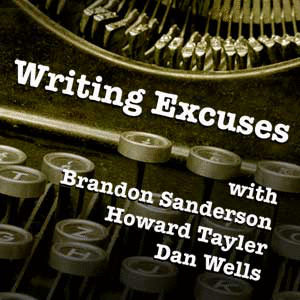Writers often ask me about query letters—how to write them, what to put in them, what will hook me.
The problem is that I hate query letters. I much prefer a simple cover letter with the first three chapters (NOT three chapters randomly sampled from the book). This is why my submission guidelines explicitly say, “Please include a synopsis and first three chapters of the novel. Do not send the complete manuscript.” The cover letter just needs to let me know the basics about your manuscript: genre, plot synopsis/hook, intended audience (middle grade or YA), and perhaps your writing credentials. Usually I don’t even bother reading the cover letter until I’ve read a page or two of the partial—until I’m hooked on the actual writing, it just doesn’t matter to me.
Occasionally I’ll get an emailed query from someone who has obviously been to our website, where they could have easily found the submission guidelines (which are prominently linked), because they’re using our Contact Us email address to query. When I email back with the link to our submission guidelines and telling them they’re welcome to send the first three chapters and a synopsis per the guidelines, often what happens is that a few days later I’ll get a package in the mail with “REQUESTED MATERIAL” written on it.
So, as I’ve said before, asking you to follow the directions does not mean I have requested your manuscript. It just means that I’ve asked you to follow the directions so I can receive your material in a way that will allow me to give it all due consideration. Once I have read the partial, I may request to read the full manuscript. But until then, writing “requested material” on the envelope for something I know I haven’t requested just makes me believe you aren’t listening, and that makes me think that working with you might not be an enjoyable experience.
Most agents, however, prefer query letters. As do some editors. Their work preferences are different than mine. This is why it’s SO important to read submission guidelines.
So if you are working on a query letter because someone you want to send it to prefers them, I can’t offer much advice. But there are plenty of people who can. For example, this recent episode of Writing Excuses features Dan and Robison Wells’s agent, Sara Crowe, giving her take on query letters and what hooks her.
Yes, yes, yes!
As a writer I have trouble understanding the push to turn the query letter into an art form. Hello, people! The novel, the picture book, the poem–these are your art. Put the energy there and you won’t have to fuss with trying to get anyone to notice your work. They’ll sense the fire in it even if your query letter (for those who want them) is plain and unvarnished.
Honestly. It’s the manuscript that counts. Work it over and through, deeply enough, and you will KNOW what to say in that query.
Conversely, no amount of polish on the query is going to bail out a weak manuscript.
Oh, this is such a pet peeve of mine–thank you for letting me air it. OK now I’m done.